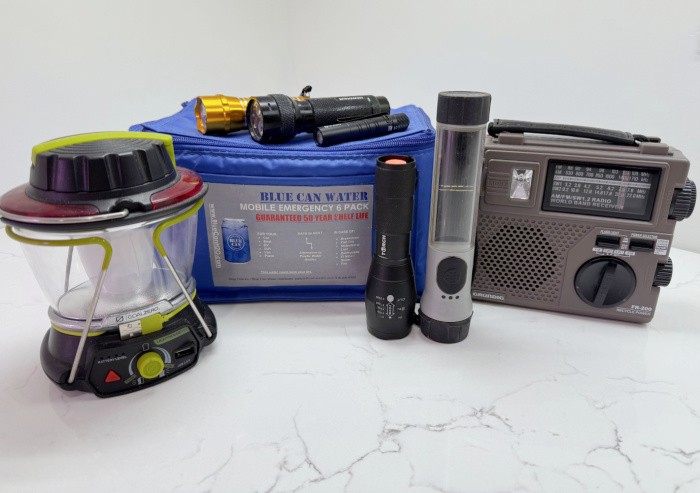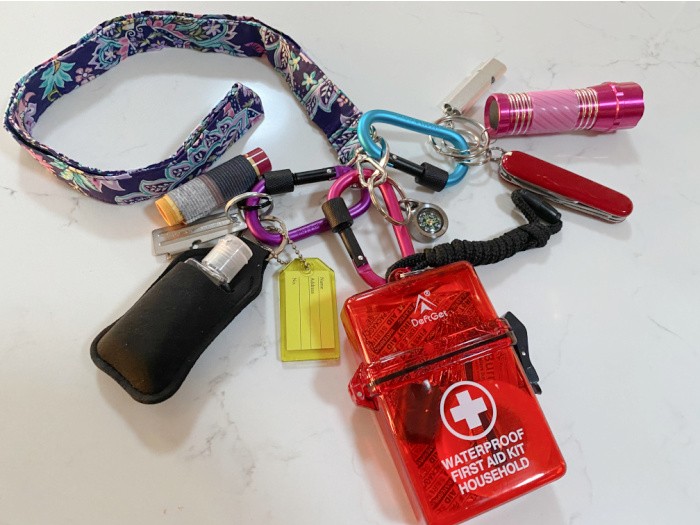Money Tips For the Beginner
Are you just now setting off on your own and need a bit of advice when it comes to your money? Maybe you’ve been at it for a while now and you just can’t get ahead?
Or maybe you’ve already taken out school loans, a car loan and are being denied on a home loan? Keep reading for money tips for the beginner.
The struggle is real, no matter which situation you’re in and there are steps you can take to make things better. Why we never learned these money skills in school is beyond us, but we’re here to help.
Check out these money tips for the beginner and those of you wanting a better way of life.
- How to Make a Small Grocery Budget Stretch
- Grocery Shopping on a Shoestring Budget
- How to Live on a Minimalist Budget
Don’t Compare Your Situation to Others
Too often we might be tempted to take a glance at our neighbor’s house and compare our assets to theirs. While the grass certainly looks greener over in their yard, it doesn’t mean they are “rolling in the dough.”
They may simply have a lot of nice things they owe a lot of money on. While it looks appealing, don’t think that buying more things will help you find the happiness you’ve been looking for.
Start with a Budget
There’s no better place to start than by sitting down and creating a budget. Write down all of your expenses, from your mortgage payment down to your Kohl’s credit card due every month.
Now take the income amount that you and your partner make and determine the difference in any money left over.
Not only will this show you areas where you can save each month, but also tell the story where you need to be more cautious with your spending.
Write Down Your Future Goals and Revisit Them Often
Everyone has dreams for their future. What’s yours? Make a list of trips you want to take when you’re older or how much money you plan on setting aside before retirement to live comfortably for the rest of your life. Revisit your goals each month to track your progress.
List Your Debts
It’s also a good idea to make a list of all the debts that you owe. Create a plan for knocking them out as quickly as you reasonably can. It will work out to your benefit to knock out the smaller debts first, along with the higher interest rate credit cards.
It will also save you more money by doing it this way. Maybe you don’t have debt, and that’s great. Make sure you stay that way by avoiding credit cards and purchases on things you don’t need. Please try using cash only on purchases.
Gather an Emergency Fund
Whenever emergencies arise and you don’t have the money to pay for it, where will you turn? Most times, people use a credit card to answer their problems.
This can sometimes lead to a financial mess if you begin resorting to the “plastic” more often.
Dave Ramsey, as financial guru, suggests that you quickly save up a thousand dollars that will cover most emergencies. Once you’ve reached that goal, strive to save the equivalent of 3 to 6 months of all your expenses so you’ll have money for that “rainy day.”
That way if you are out of work due to an injury or being laid off, you’ll be able to survive.
Know Your Credit Score
While you can survive without credit, it can certainly be difficult to get loans when you don’t have the money to pay cash for them.
Paying your bills on time will be huge when trying to increase your credit score. Know what your credit score is and help it grow.
Shop Around for the Best Deals
You don’t have to settle on the first home insurance or phone company that comes your way. Shop around and see which one has the best options, coverage, and incentives for you. You could save hundreds each month on just these two expenses alone.
Renegotiate Your Payments
Is your cable package deal expiring, or are you already paying too much? The great news is that you can renegotiate your plan.
If that cable company sees that you’ve been a good customer, they certainly don’t want to lose you and will be willing to offer you a better deal. You can do this with your monthly internet bill, and so on.
Stop With the “Dumb” Purchases
Here’s a bit of advice. Stop buying things that you really don’t need. While it’s nice for a while, the monthly payment you have to make on that new phone will take away from the excitement it promised.
Sleep On a Purchase
If you’re really wanting a “toy” that costs a lot of money, sleep on it for a night or two. You might find that it’s something you didn’t really need, and that realization could keep you from wasting a bunch of money.
Learn What it Means to be Frugal
There’s a difference between being a cheapskate and being frugal. Frugal people see the value of something and stretch the life out of it by making their dollars go further.
Instead of buying a new car, find one that’s much cheaper with low miles, that you will probably drive for just as long.
Find the Best Savings Method and Stick With It
Save, save, save. We can’t stress this enough. Find the best savings methods that work for you and don’t quit. If you struggle with this, maybe you should consider an automated savings account or payroll deduction that tuck away savings for you automatically. Just remember to leave it alone.
Improve Your Skills
You’re never too young to learn new skills. Doing so can get you some income raises, promotions, or help you find a job that you thoroughly enjoy. The more you learn the more you can earn.
Don’t Skip Out on Life Insurance
Whole life insurance costs more money than we’d like, it’s important that you don’t hold out on it. Everyone wants what’s best for their family. Do some research before you pick out which is right for you.
If you can’t afford Whole Life/Universal Life insurance then please look at term insurance. If you’re young and healthy typically it’s very cheap and you can sleep at night knowing your family will be okay financially if something happens to either of the parents of small children.
Not having it can jeopardize your family’s future if something were to happen to you, costing them far more money than what you paid on that life insurance.
Final Word
These are a handful of money tips for the beginner or those that are trying to get on track. What other bits of advice do you have regarding money tips that you may have learned along the way and are willing to share?
These are the ultimate money tips for the beginner. It’s all about managing our money, right? Please keep prepping, we must. May God bless this world, Linda






















While credit cards can be dangerous if misused, with a little discipline they are a great tool. By only charging what you know you can afford, you can build up a credit history which is critical to getting a decent credit score. And credit cards offer more protection than debit card purchases. That said, if you don’t pay them off each month then the interest charges will quickly outweigh any benefits.
Hi dmwalsh, you are so right about that! The problem is some people do not know how to use credit cards. They think because an item is on sale they may buy it with a credit card. AND then not be able to pay it off. Great comment, Linda
Linda,you make some really great money management points! Paying off debt and saving up for what you want is great advice, however, easier said than done. Especially when first starting out. High schools used to teach basic money and home skills when I was younger. Sadly someone decided it was better for the government/big corp to oversee most of this now! Would be great to see some of these personal skills teachings brought back into the fold again. Thanks for helping to make sense out of money management skills! Stay safe (educated) and God Bless…
Hi Bill, sorry it took so long to get back to you today. I totally agree with you about bringing these skills back into the schools. Thank you for your kind words, I work hard to teach the world to live a better and safer world. Linda
Daily, I put whatever change in my pocket into a big pickle jar. Usually around the first week of December, I haul it to our bank. (They’re not real excited to see me.) Takes them about 15 minutes at a cranky machine to separate all that. Now, I see kiosks that do it automatically, but I enjoy socializing with the teller who got the long straw. Christmas shopping fund, Boom!
Hi Bob, oh my gosh I love hearing this! I can actually picture the pickle jar. You are smart to go to the bank. Those counting machines take a small percentage. I LOVE LOVE LOVE your idea! Linda